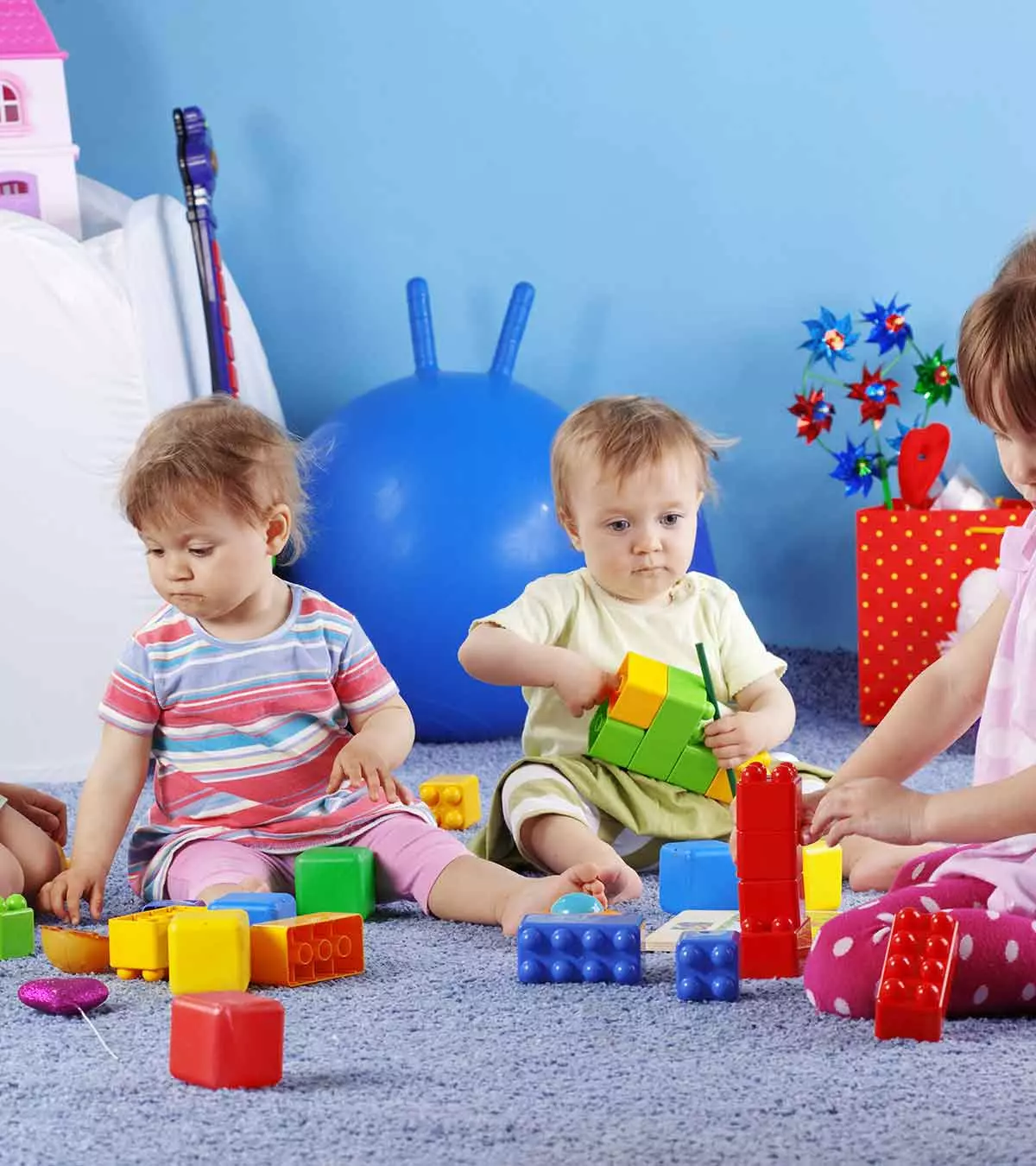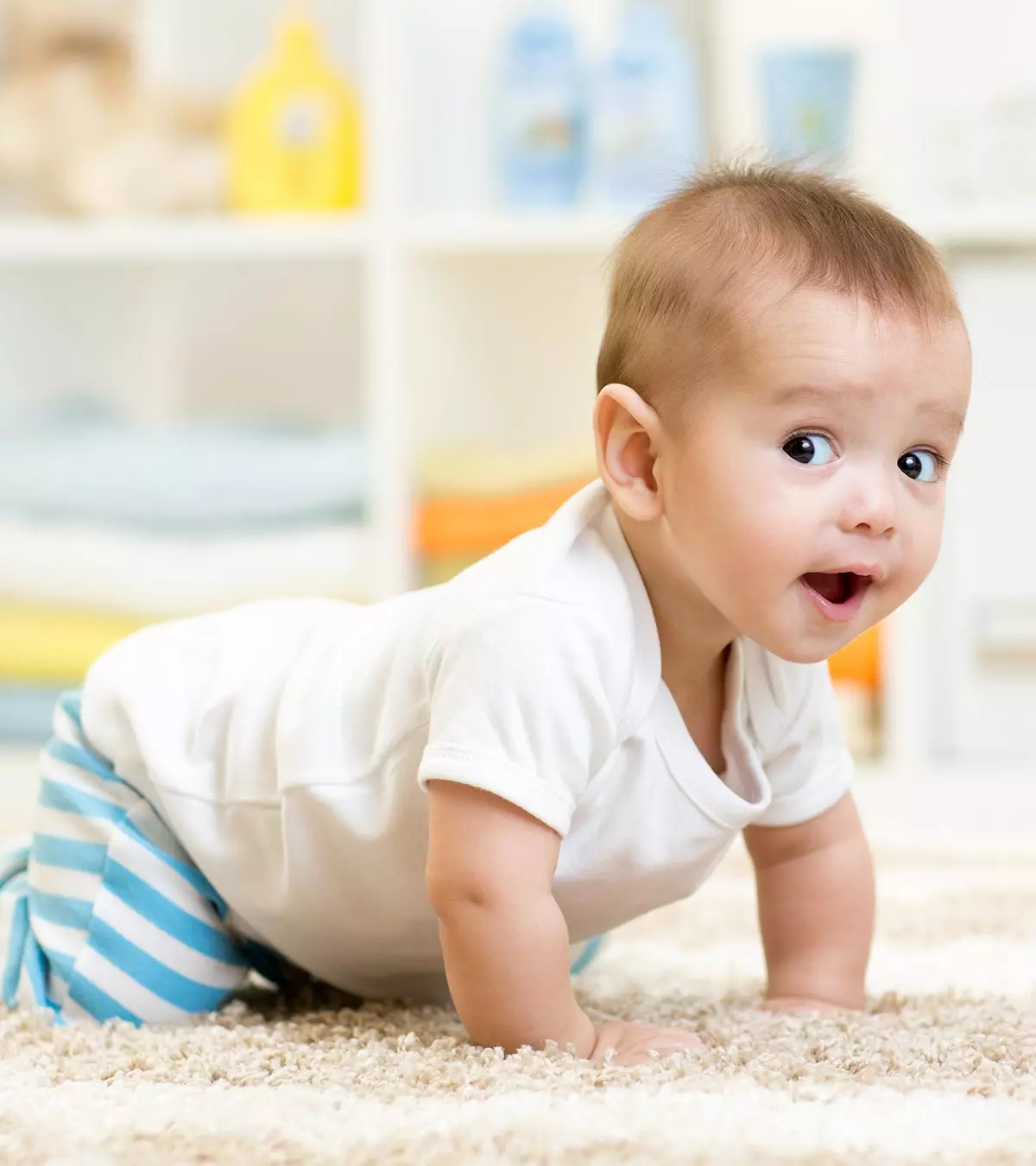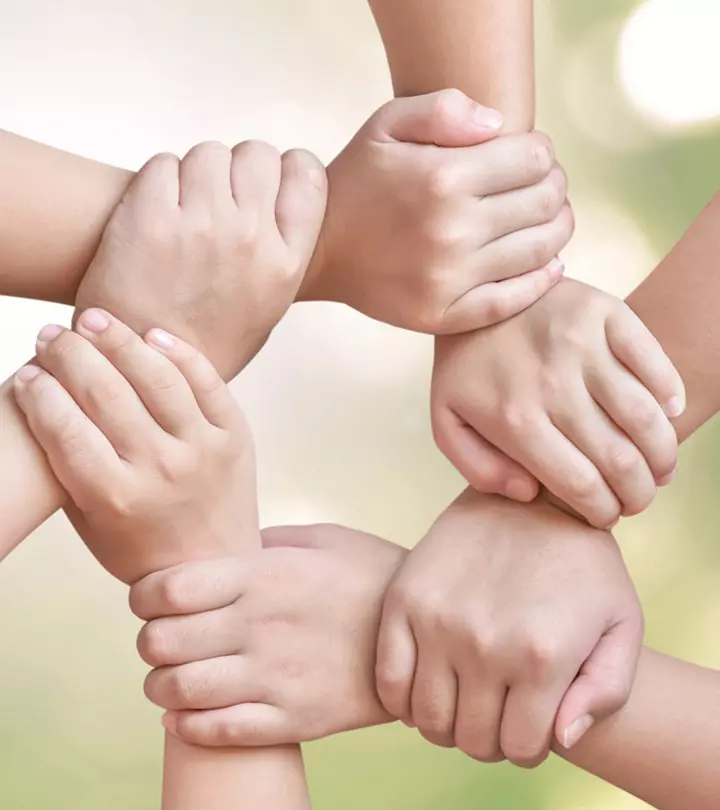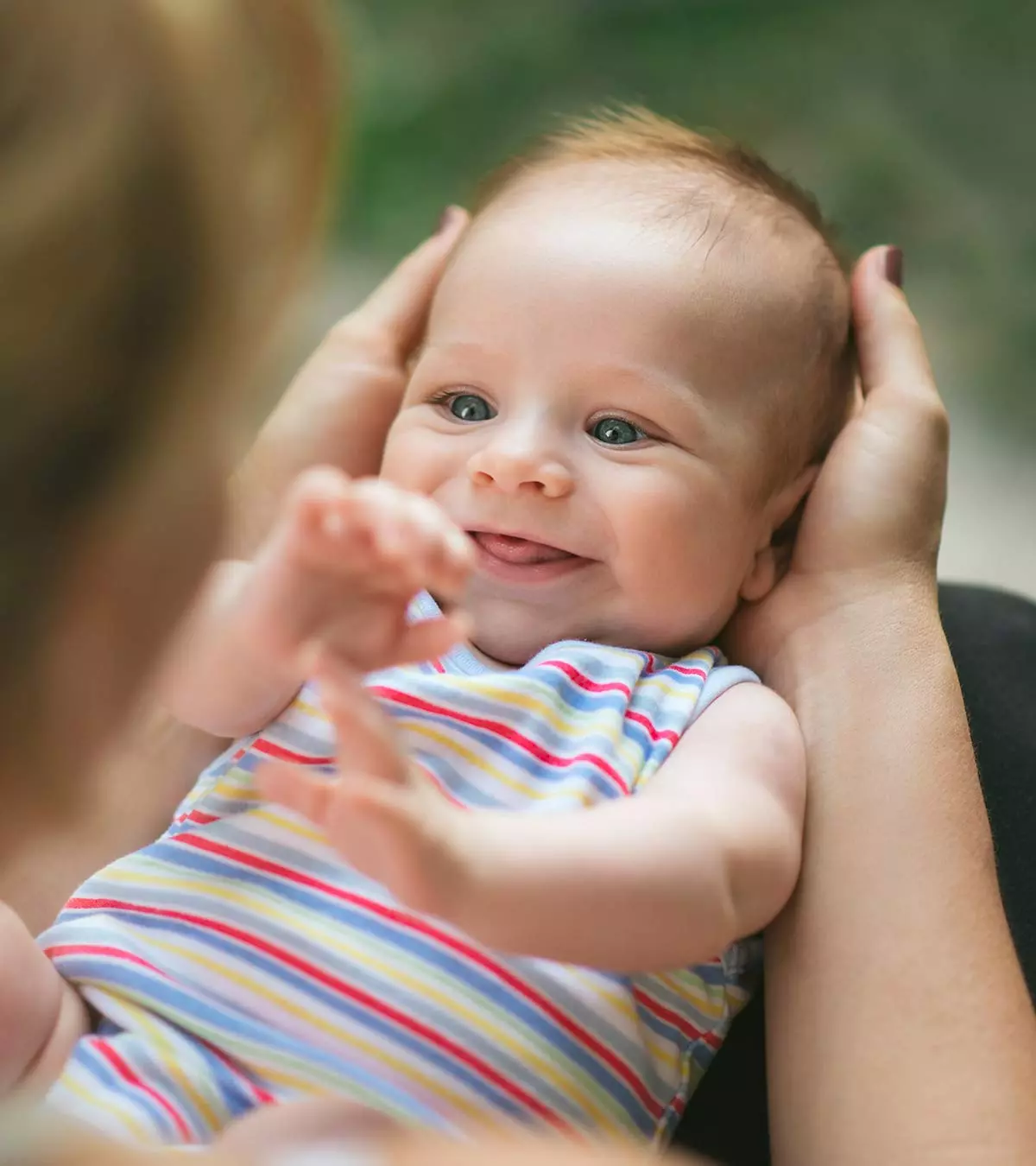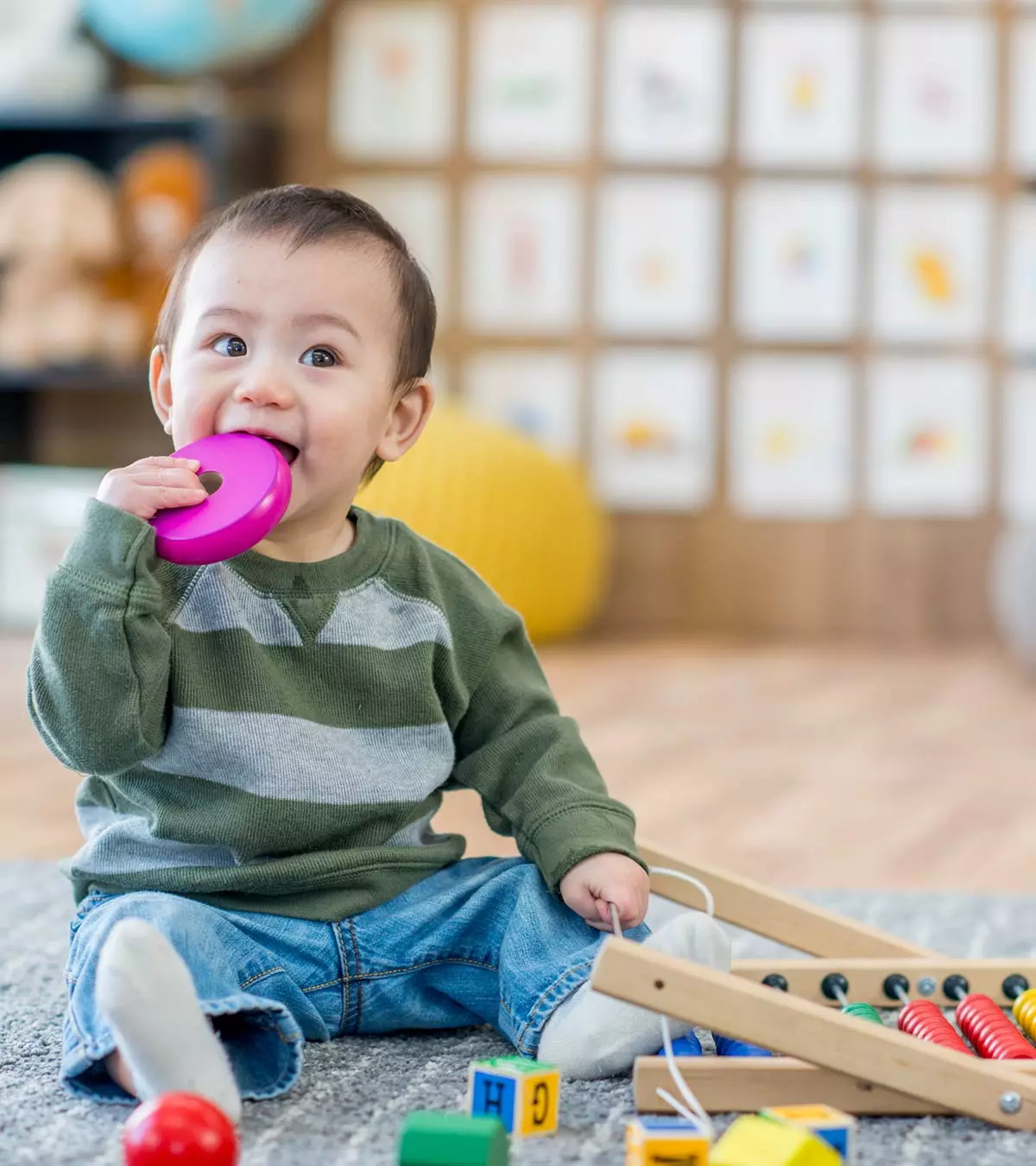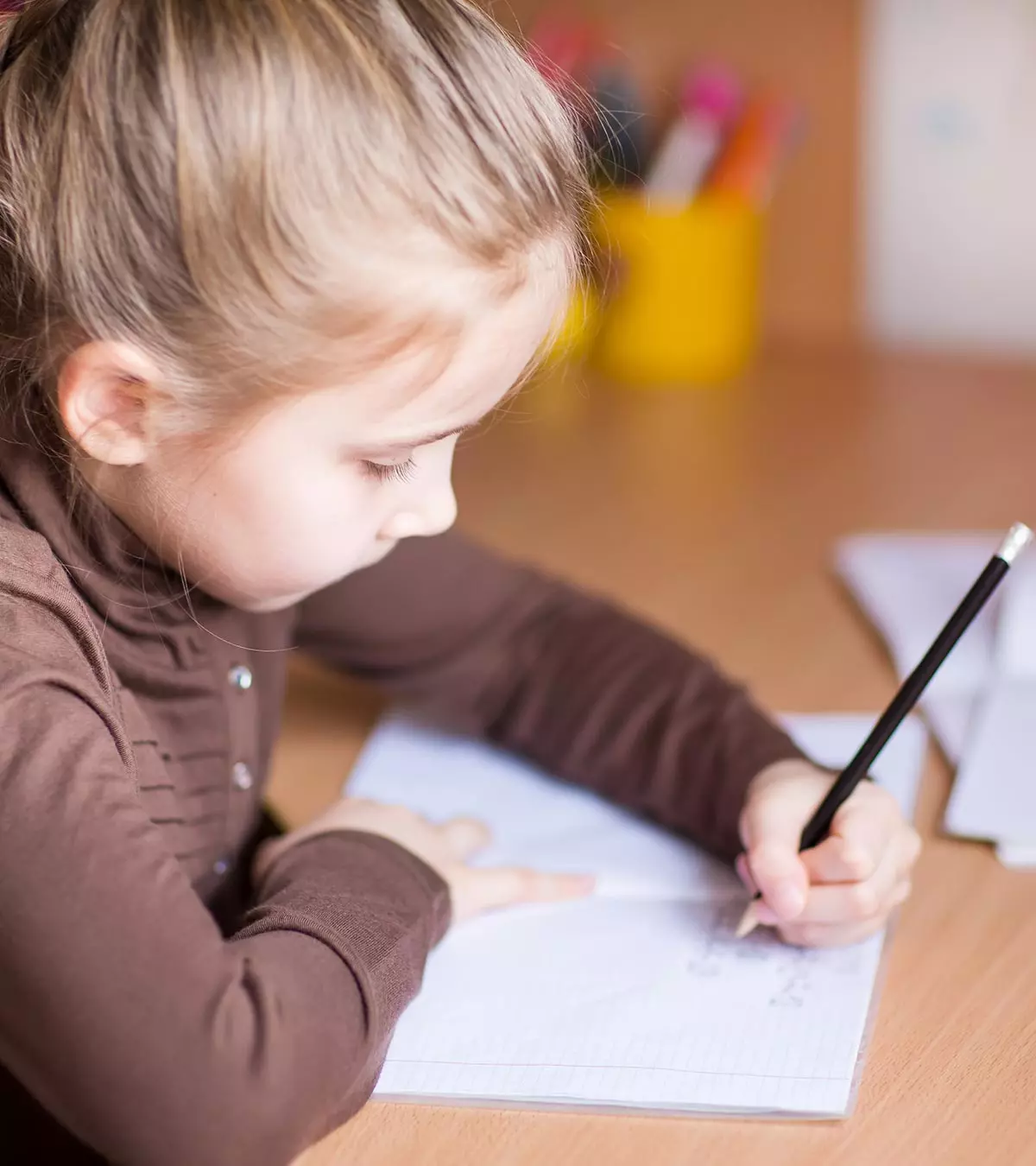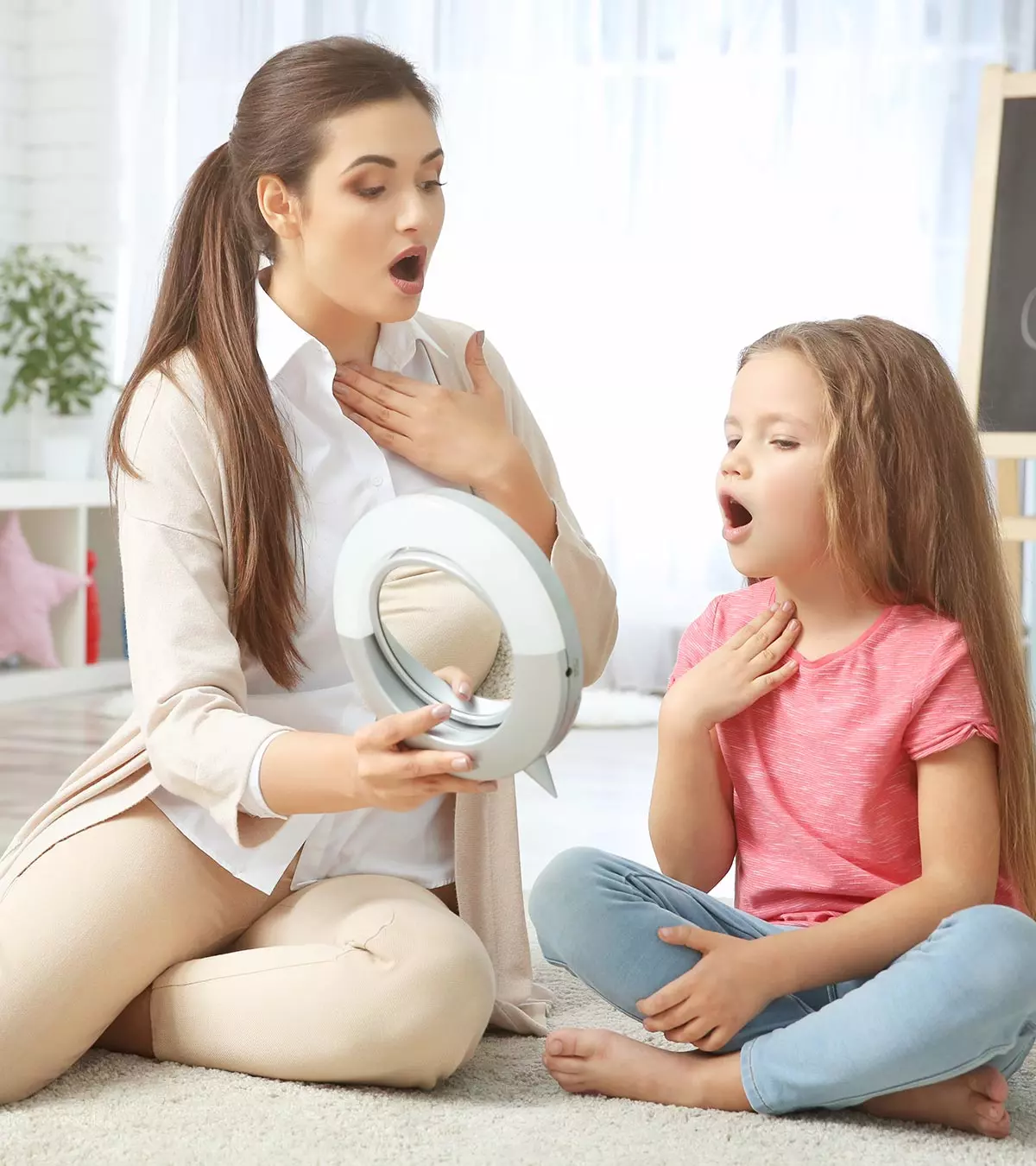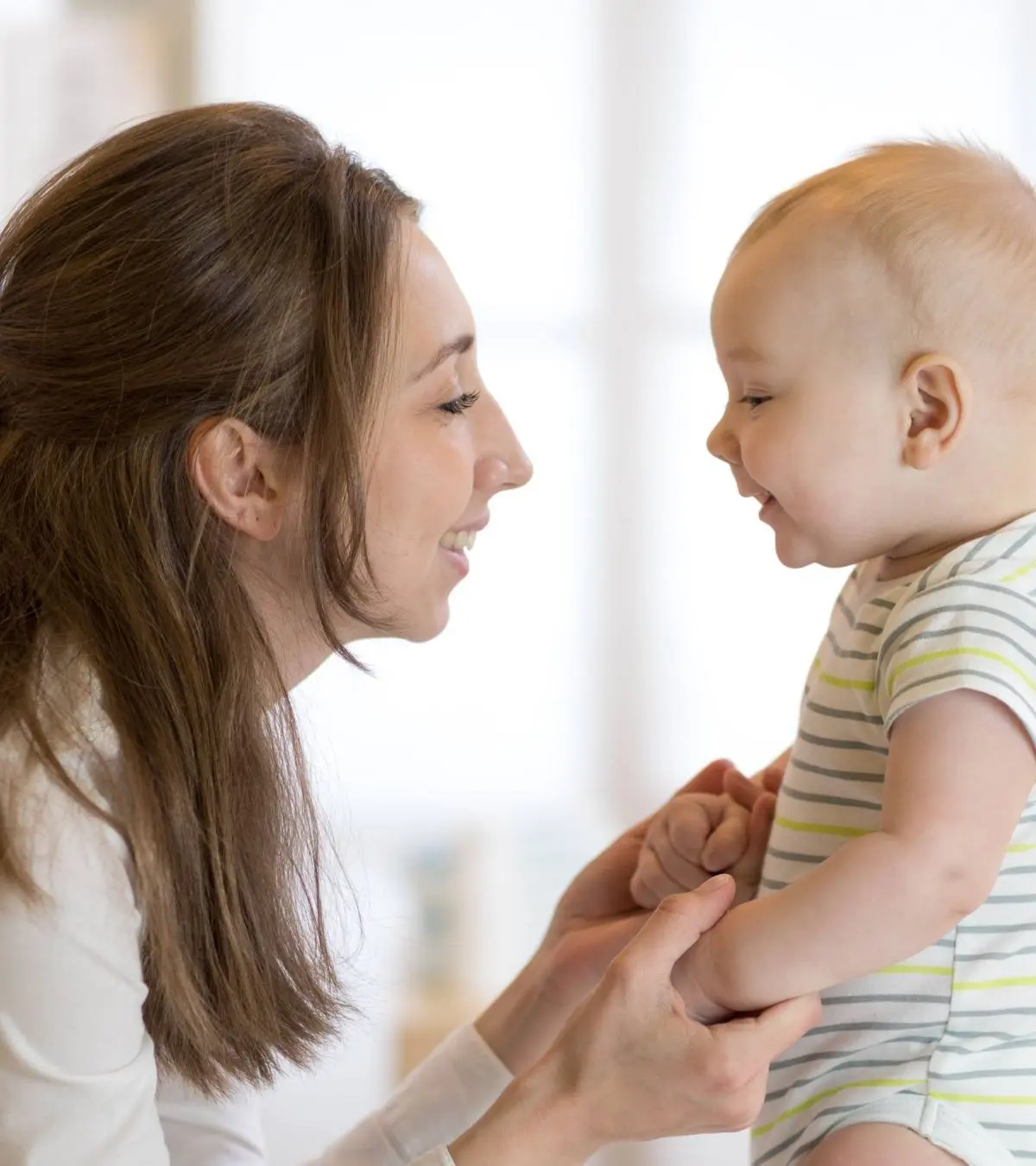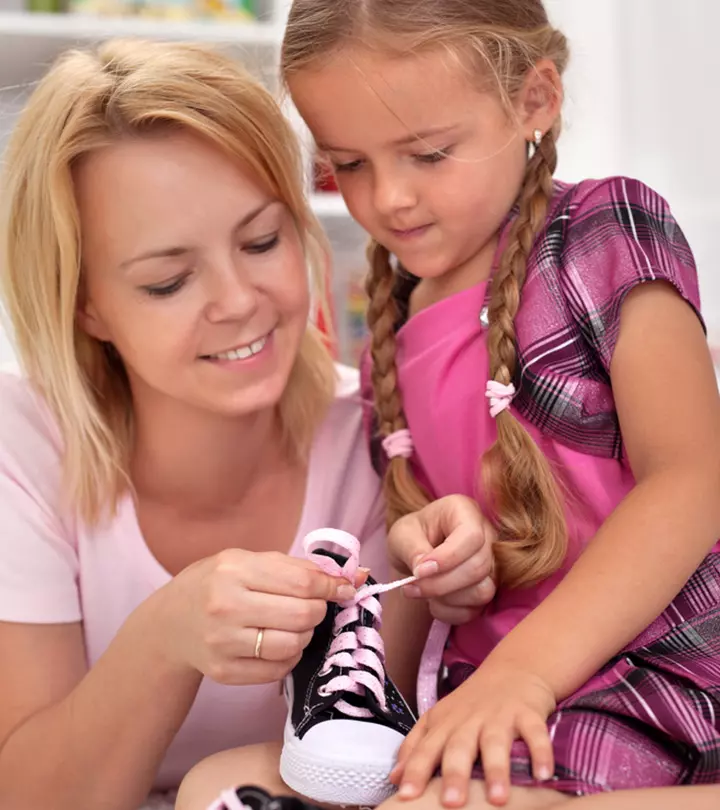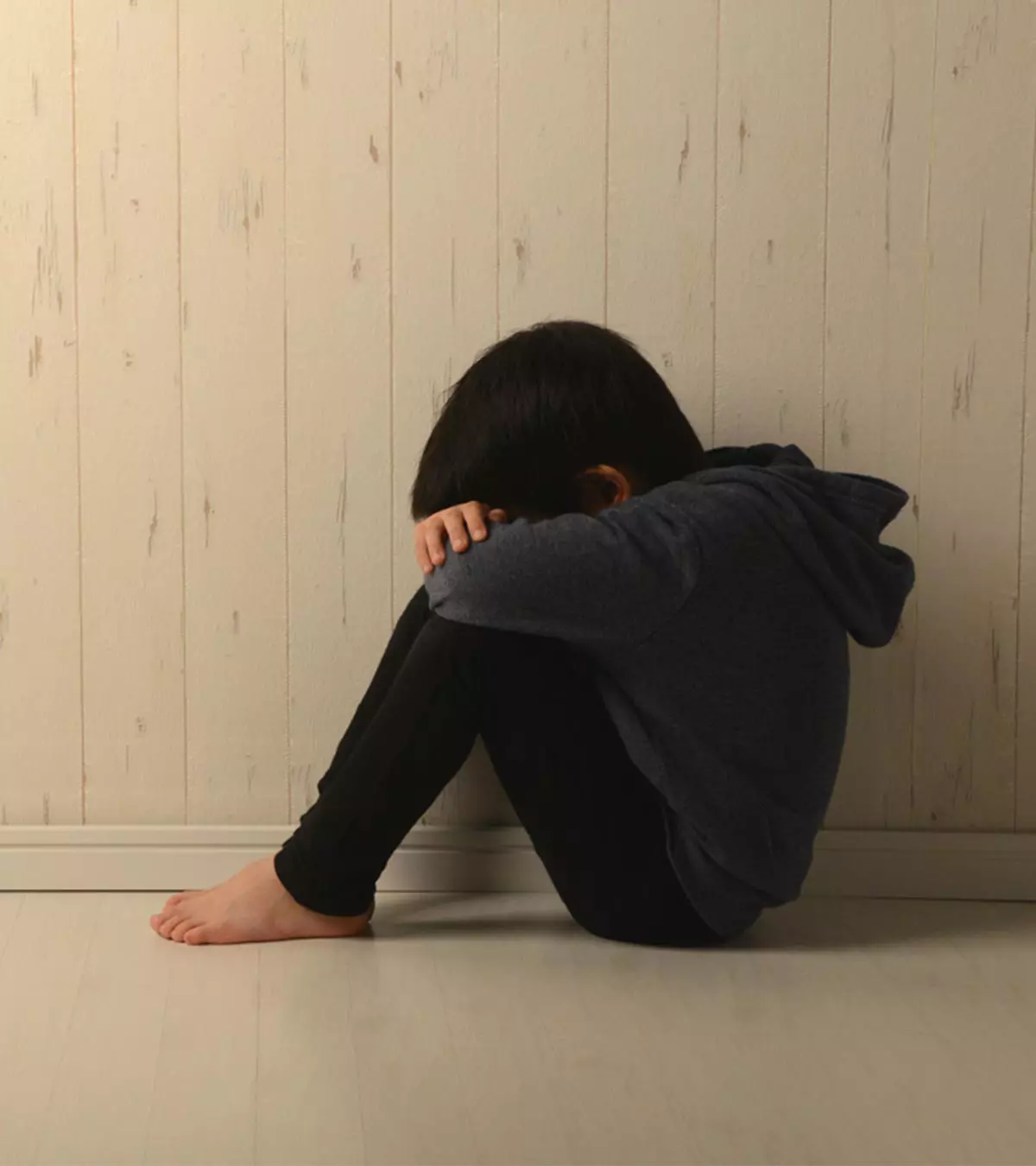
Image: iStock
Social anxiety in toddlers is not the normal shyness they exhibit in some social situations, and it can have various signs. Toddlers can experience various types of anxiety. However, social anxiety could be the fear of being judged by others.

Toddlers with social anxiety may constantly feel anxious and self-conscious when around others. You may notice nervousness and the fear of social interaction in them. Encouraging the toddler to interact with others and do activities in front of others can help them overcome this fear.
Read on to know about the cause, signs, and ways to deal with social anxiety in toddlers.
Key Pointers
- A toddler may experience social anxiety due to genetics, overprotective parents, or stressful events.
- Toddlers with social anxiety tend to be socially awkward, self-conscious, or avoid playing with peers.
- Consult a child’s psychologist so they can conduct talk therapy with you and your toddler to help cope with their issue.
- Encouraging them to mingle with others, introducing social scenarios to prepare them, empathizing with them, and many more ways can help them overcome their anxiety.
What Causes Social Anxiety In Toddlers?
It is common for toddlers to display some anxiety and shyness, especially around strangers, from the age of one year (1). It is part of the little one’s normal social and behavioral development and is seldom a cause for concern. However, if the toddler always displays intense fear, anxiety, and shyness in social settings and has a constant fear of being humiliated or judged, it could be considered a social anxiety disorder (2). Identifying the signs of social anxiety early is crucial, as it allows you to offer timely support and reduce its effects on your child’s growth.
There is no specific reason why toddlers develop a social anxiety disorder. Below are some factors that may lead to it (3).
- Genetics: Research suggests that a toddler with a family history of social anxiety disorder could be more susceptible to it. Therefore, a toddler may have a higher chance of developing the disorder if one or both parents have or had it. A toddler may also be at a higher risk if their siblings have the condition.
- Social factors: Some toddlers may develop constant social anxiety after a stressful social event. Their apprehension could stem from a social situation that caused them intense embarrassment. If peers, siblings, or parents constantly ridicule a toddler in front of others, it may also trigger social anxiety disorder.
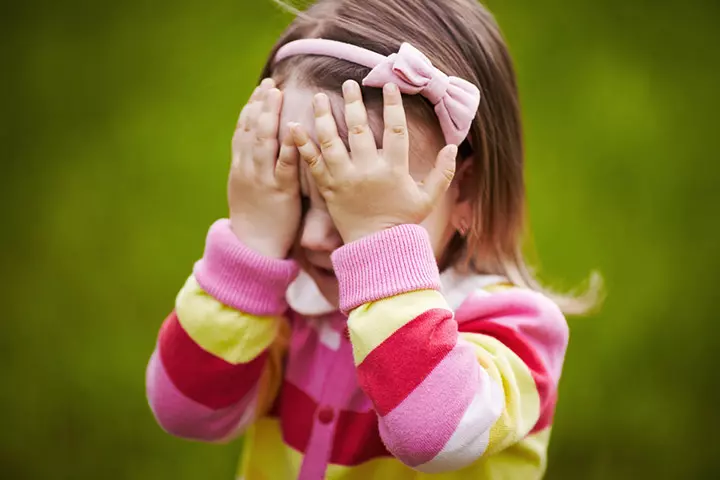
- Parental factors: Toddlers may become susceptible to the disorder if constantly discouraged to have social interactions by parents. Such toddlers may dread interaction with strangers. Research indicates that overprotective parenting may also increase the risk.
Some toddlers may develop social anxiety disorder even without displaying any other factors. In such cases, it could be due to the individual insecure personality of the toddler.
Is Social Anxiety A Sign Of Autism?
Autism spectrum disorder and social anxiety disorder may have a few overlapping signs and symptoms (4). Social anxiety may also occur in those with autism, but it is not an exclusive sign of autism (5). Therefore, not all toddlers with social anxiety have autism.
The biggest difference is, autism is a neuro developmental disorder where children behave socially restricted at home too, social gatherings have no effect on it, while social anxiety is more inclined towards behaving in groups.
The diagnosis of autism in toddlers involves several assessments, including checking the child’s developmental history from birth (6). The toddler would need multiple assessments at different ages to conclude the presence of autism.
Addressing social anxiety among children is crucial for their overall well-being and development. Logan Haney, a blogger, recounts in her blog how social anxiety has shaped her as a person in a positive way, in spite of several challenges. She says, “My shyness and social anxiety posed multiple challenges for me as a kid, but I was just one of many cases.
“The more I consider my social anxiety as a child, the more I realize how deeply it has affected my life. Much of the person I am today is a reflection of my shyness in some way, from my personality to my actions to the thoughts I have as I’m trying to fall asleep each night.
“This is the power of past events and the stories we create around them. I consider myself to be long past the most difficult stages of social anxiety, yet I continue to discover new truths about it each month.
“When I was going through the worst stages, there was no way I could have seen my social anxiety in any sort of positive light. Every day was a struggle to overcome. I was largely focused on getting through each day rather than trying to enjoy my time. At the time, survival was my definition of success.
“A lot of time has passed since then. I have slowly changed into a completely different person. I find myself with a different sense of perspective that allows me to see the benefits of my struggle with social anxiety. After all these years, I might even consider myself a little lucky to have learned so much about myself and my world at an early age (i).”
Signs Of Social Anxiety In Toddlers
Below are some of the common signs of social anxiety in toddlers (7).
- Avoids eye contact or participation in social situations. Some scared kids may display extreme fright and uneasiness when asked to be a part of a social situation, such as a game or a group activity.
- Displays constant self-consciousness. The toddler is always shy and self-conscious during a family gathering, social events, or at the daycare. Overcome with insecurity, they may keep to themselves at a social gathering.
- Avoids activities that involve interaction. They will often show hesitation over interacting with others. It could include activities from games at daycare to speaking to a relative on the phone.
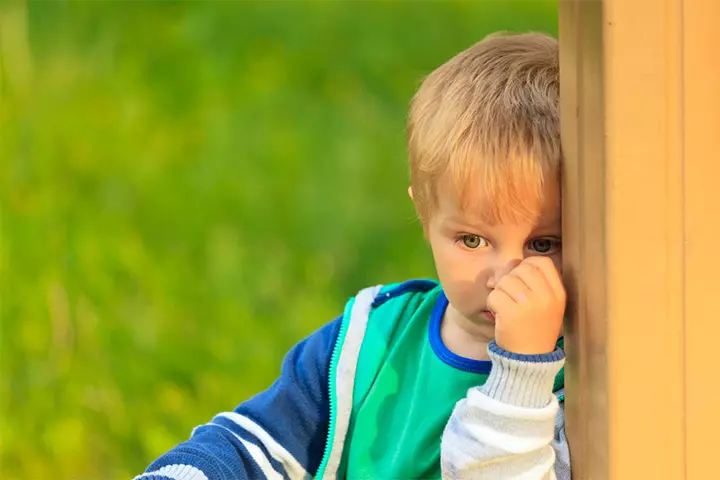
- Takes time to finish a task when in a group. Since the toddler is constantly overcome by self-doubt, they may find it difficult to concentrate on the task at hand and finish it within the time limit.
- Shows fear of being judged. Older toddlers may communicate about their fear of being humiliated or judged when around strangers or peers during activities.
A toddler with social anxiety will also display physical symptoms along with the signs. A few physical symptoms of social anxiety are stomach ache, nausea, sweating, and trepidation.
Diagnosis And Treatment Of Social Anxiety
A pediatrician or pediatric psychiatrist will diagnose social anxiety based on the toddler’s signs and symptoms noted by the parents. Some amount of social anxiety is normal in toddlers. A child psychologist will examine the following factors to diagnose social anxiety disorder (8).
- The toddler displays extreme panic and anxiety during social situations and constantly fears being ridiculed by those around them.
- The toddler always avoids at least one social situation with extreme resistance. If the toddler is forced into the social situation, they display terror, severe distress, and physical symptoms.
- Social anxiety interferes with the toddler’s social development and normal activities, such as attending playschool, making friends, and interacting with other people.
Normal social anxiety does not require treatment. Social anxiety disorder could be treated through various methods, depending on the toddler’s age, the triggering factors, and the presence of other issues.
A good child psychologist will first assess the case for severity and later, starts with a series of therapies to help your child

Cognitive behavioral therapy (CBT)is the most common treatment method used to help the toddler get over social anxiety (2). The therapy contains several lifestyle-related interventions customized to meet the toddler’s requirements. Parents are involved and are guided on ways of helping the toddler manage triggers and reduce anxiety. The therapy helps in the improvement of social anxiety disorder eventually.
How Does Therapy Help Toddlers With Social Anxiety?
Consulting a specialized therapist can guide parents or caregivers in addressing concerning behaviors and understanding the child’s struggles (9):
- Some therapists focus on the mental well-being of young children and can provide thorough assessments for better comprehension.
- Therapists involve parents in family therapy, which is also beneficial. It equips parents with valuable guidance to navigate their child’s challenges effectively.
- Toddlers with social anxiety can feel reassured about the safety of their surroundings when they observe composed discussions between parents and the therapist.
Therapists can uncover the underlying reasons for a toddler’s social anxiety. Children grow and evolve, and it is essential to let them know that seeking help is always acceptable.
Tips For Parents Of Toddlers With Social Anxiety
Parents may also incorporate certain practices, routines, and steps to reduce the toddler’s anxiousness in social situations. Below are some ways to help a toddler with social anxiety (10).
- Prepare the toddler for social situations. One of the best ways to do it is to rehearse the situations causing social anxiety. For instance, if the child finds it difficult to participate in group activities for toddlers, you may first try it at home. Before you take them to meet a relative, you may try a video call to break the ice.
 Point to consider
Point to consider- Introduce them to one social situation at a time. Encourage your toddler to be a part of one social situation at a time. If you ask them to be a part of various social situations at once, it may trigger social anxiety. Therefore, take baby steps.
- Do not force the toddler. Give the toddler some time to grow at ease with the situation. Avoid forcing them to do something quickly. For instance, if they are extremely shy while meeting a relative, encourage them to interact but do not compel them. Instead, try again later or the next day, and you may notice positive results.
- Provide gentle encouragement. Be subtle and gentle in your encouragement. Do not physically hold or place the toddler in the company of people and avoid coaxing with a stern voice. It is going to compound the effects of social anxiety.
- Do not ridicule the toddler. It is okay to take time and fail initially. Remember, the toddler is young and does not have the cognitive maturity to conquer social anxiety immediately. Therefore, avoid comparison and criticism of any sort that may discourage the child.
- Stay calm when the toddler becomes anxious. Toddlers with a social anxiety disorder may have a severe meltdown when in situations that trigger social anxiety. Their behavior may cause disquiet amongst those around them. However, try to maintain your cool and calmly come to your toddler’s rescue. Acknowledge the toddler’s anxiousness with words, but say that you can return to the situation to deal with it again. The parent’s calm demeanor in such cases could have a positive effect on the toddler.
- Avoid being overprotective. If your toddler has social anxiety, it does not mean that you need to shield them from every social situation and allow them to spend time in isolation. Avoid being excessively protective since it could make it difficult for a toddler to deal with triggers. Parents’ overprotective nature may also suggest to the toddler that it is okay to be anxious around people.
- Increase the time spent gradually. Let the toddler experience the trigger for a few extra minutes each day. For example, if the toddler spends 30 minutes with their neighborhood friends each day, increase the time by a minute each day. The toddler is less likely to notice time increments and would gradually get over the dreadfulness of social situations and grow at ease with them.
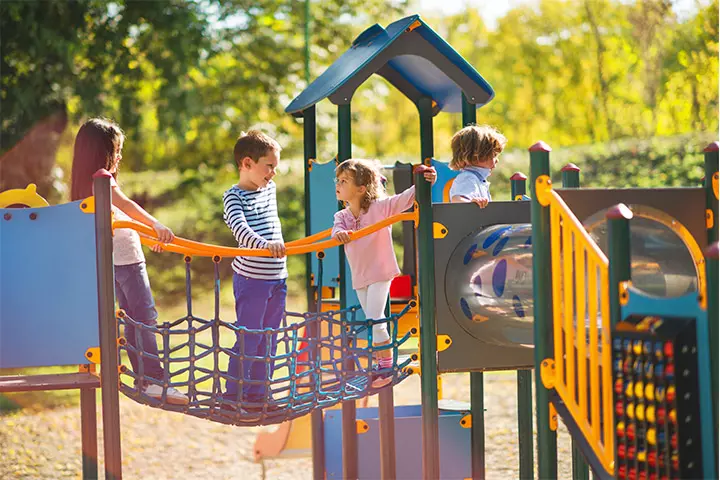
- Create a routine. Some toddlers may develop social anxiety in anticipation of a social event. You could reduce this effect by setting a fixed time-table for various activities in a day. It makes the routine predictable for the toddler and could help them prepare mentally for it.
- Encourage confidence. Tell the toddler that he/she is good and that no one will judge him/her. Tell them that they should not take someone’s teasing seriously and that irrespective of what others say, he/she is perfect for you, the parents. You may explore various ways to instill confidence in your little one by observing the triggers of social anxiety.
- Teach mindfulness. The fear of humiliation is often in the mind of the toddler and may not happen for real. One of the best ways to tackle it is to teach mindfulness, a state of mind where a person lives in the moment and focuses on reality. Tell the toddler that people think positively of them and that they should not fear interacting with others.
- Listen to the toddler’s thoughts. Older toddlers may be able to communicate their thoughts and feelings related to social anxiety. Listen to them with patience. It could help you determine potential triggers and come up with possible solutions.
- Praise and acknowledge the toddler’s efforts. Once your toddler displays improvement, praise them with cuddles and positive words. When parents praise children for a behavior, it helps reinforce it for the long-term.
- Take help from familiar people. Involve the people the toddler trusts and whose company the toddler does not feel anxious. It could include teachers, grandparents, and other people in your community. Involving others can ensure the toddler gets the same encouragement everywhere.
- Set positive role models. You may give examples of yourself or other people the toddler admires, such as superheroes. Positive role models could help the toddler self-soothe mentally during social situations, especially when they are all by themselves.
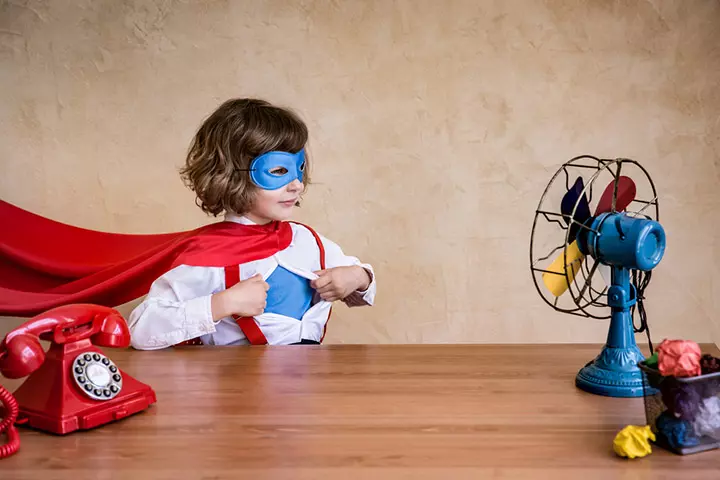
Frequently Asked Questions
1. Can childhood trauma cause social anxiety?
Yes, studies suggest that childhood trauma may be associated with greater severity of social anxiety disorder (11).
2. Can neglect cause social anxiety?
Yes, studies have shown that emotional abuse and neglect may cause social anxiety and other psychological problems. The impact of neglect was found to be greater than physical abuse (12).
3. How long does social anxiety take to go away?
If untreated, social anxiety disorder may continue for years (and may go away as the child grows) or even a lifetime (13).
4. What happens if social anxiety is left untreated?
Toddler social anxiety is commonly observed due to parental or societal factors that cause stress in social gatherings or when babies are surrounded by many people. It is vital to note that although a few signs of autism and social anxiety disorder might overlap, either of them is not the result of one another. Following CBT treatment measures and preparing your child beforehand for social interaction, and encouraging them to engage in conversations may help your child overcome the signs of anxiety without any significant difficulty.
Infographic: The Stepladder Approach For Social Anxiety In Toddlers
A toddler with social anxiety may miss out on the simple joys of childhood as they cannot mingle with their peers to play and have fun. This may also take a toll on their mental health. So if your child also faces a similar struggle, try the stepladder approach to help your toddler overcome their anxiety in a controlled but effective manner.
Some thing wrong with infographic shortcode. please verify shortcode syntax
Illustration: Effective Ways To Deal With Toddler Social Anxiety
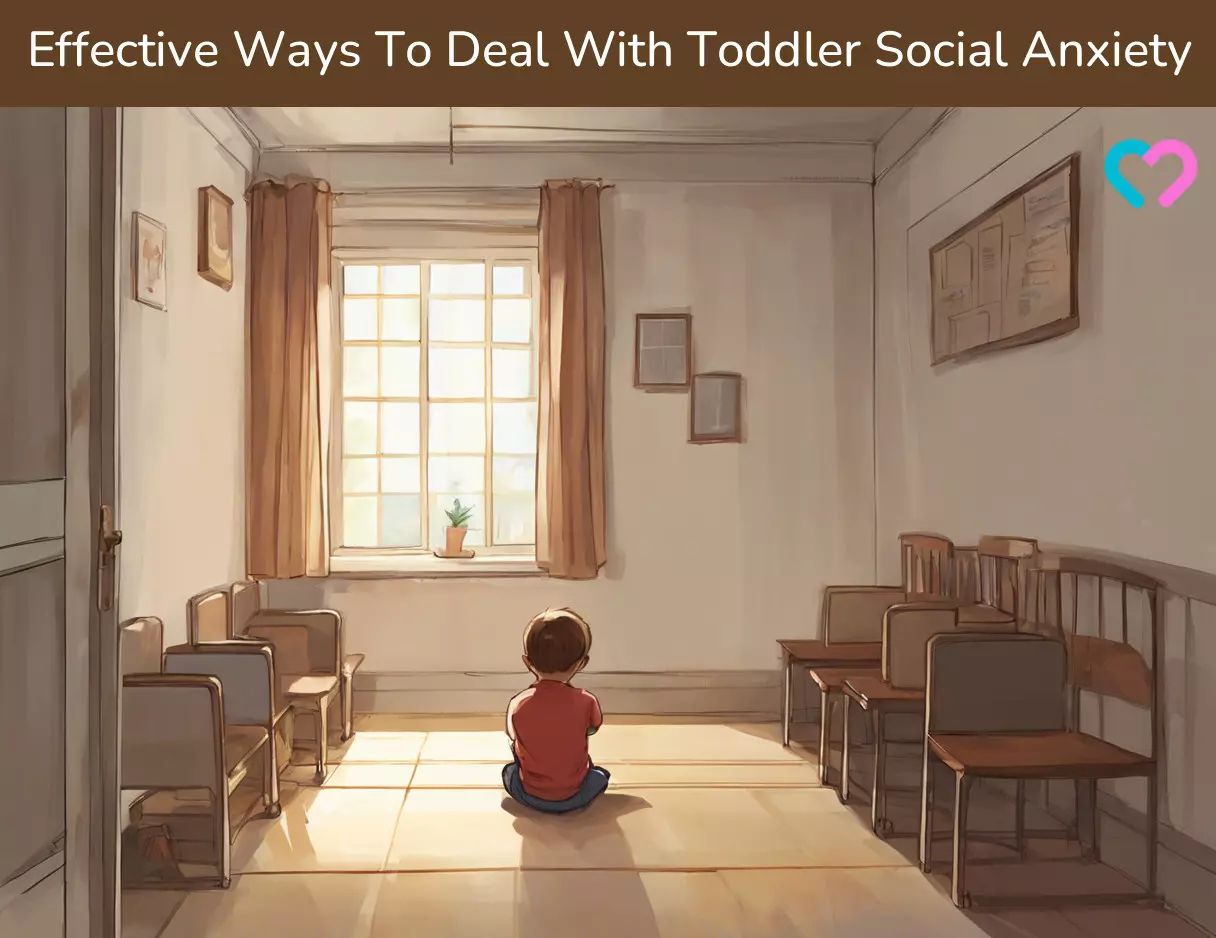
Image: Stable Diffusion/MomJunction Design Team
Personal Experience: Source
MomJunction articles include first-hand experiences to provide you with better insights through real-life narratives. Here are the sources of personal accounts referenced in this article.
i. I was a shy kid — and it turned out to be a blessing in disguise;https://medium.com/mind-cafe/i-was-a-shy-kid-and-it-turned-out-to-be-a-blessing-in-disguise-b79761b9323a
References
1. Important Milestones: Your Child By One Year; CDC
2. Anxiety in children; Harvard Medical School
3. Social Anxiety Disorder; U.S. National Library of Medicine
4. Johan LundinKleberg et al., Autistic Traits and Symptoms of Social Anxiety are Differentially Related to Attention to Others’ Eyes in Social Anxiety Disorder; U.S. National Library of Medicine
5. Managing Anxiety in Children with Autism; Autism Speaks
6. Screening for Autism Spectrum Disorder; CDC
7. Social Anxiety Disorder in Children and Adolescents; Boston University
8. Heidi Gazelle and Kenneth H. Rubin, Social Anxiety in Childhood: Bridging Developmental and Clinical Perspectives; U.S. National Library of Medicine
9. Does Your Toddler Have Social Anxiety? Here’s What You Can Do; GoodTherapy10. Social anxiety in children; Raising Children Network11. Carolien J.W.H. Bruijnen et al., Social anxiety disorder and childhood trauma in the context of anxiety (behavioural inhibition), impulsivity (behavioural activation) and quality of life. NCBI12. Benjamin Iffland et al., Emotional but not physical maltreatment is independently related to psychopathology in subjects with various degrees of social anxiety: a web-based internet survey.; BioMed Central13. Social Anxiety Disorder: More Than Just Shyness; National Institute of Mental Health14. Why Childhood Anxiety Often Goes Undetected (and the Consequences); Child Mind Institute,15. Social Anxiety Disorder (Social Phobia).Cleveland Clinic
Community Experiences
Join the conversation and become a part of our nurturing community! Share your stories, experiences, and insights to connect with fellow parents.
Read full bio of Dr. Neha Mehta
Read full bio of Rohit Garoo
Read full bio of Dr. Ritika Shah
Read full bio of Apoorva K







